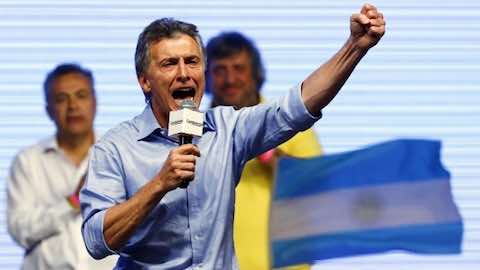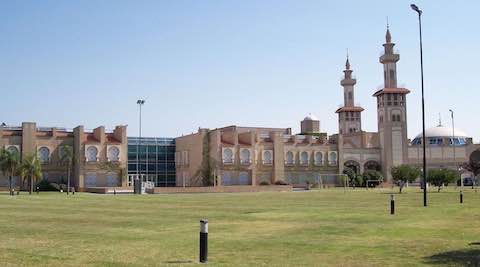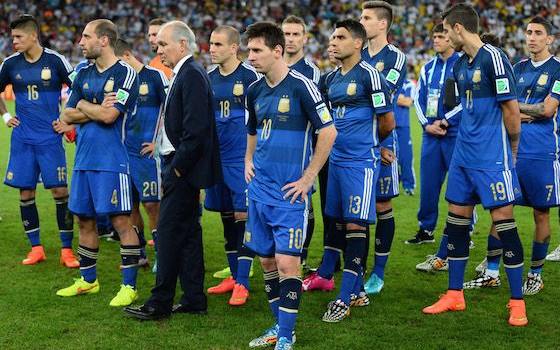- MENU
- HOME
- SEARCH
- WORLD
- MAIN
- AFRICA
- ASIA
- BALKANS
- EUROPE
- LATIN AMERICA
- MIDDLE EAST
- United Kingdom
- United States
- Argentina
- Australia
- Austria
- Benelux
- Brazil
- Canada
- China
- France
- Germany
- Greece
- Hungary
- India
- Indonesia
- Ireland
- Israel
- Italy
- Japan
- Korea
- Mexico
- New Zealand
- Pakistan
- Philippines
- Poland
- Russia
- South Africa
- Spain
- Taiwan
- Turkey
- USA
- BUSINESS
- WEALTH
- STOCKS
- TECH
- HEALTH
- LIFESTYLE
- ENTERTAINMENT
- SPORTS
- RSS
- iHaveNet.com: Argentina Current Events
Countries
Argentina | Australia | Austria | Benelux | Brazil | Canada | China | France | Germany | Greece | Hungary | India | Indonesia | Ireland | Israel | Italy | Japan | Korea | Mexico | New Zealand | Pakistan | Philippines | Poland | Russia | South Africa | Spain | Taiwan | Turkey | United Kingdom | United States
-
Coverage, analysis, photo and video coverage of the 2014 FIFA World Cup from Brazil
-
Celebrations in Buenos Aires on Sunday after Messi finally made his mark on the World Cup with his first goal in the finals for eight years as Argentina were forced to battle for a 2-1 win over debutantes Bosnia
-
Check out the photos from the Group F matchup between Argentina and Bosnia and Herzegovina at the 2014 FIFA World Cup in Brazil
-
A joke making the rounds on the Internet says that if Argentina were a celebrity, it would be Justin Bieber - a rich, spoiled, irresponsible teenager, who always repeats the same mistakes, and always blames others for them
-
If you think that Latin America is doomed to remain behind in science, technology and innovation - as one could conclude from the latest international rankings of patents of new inventions - you should meet Luis Von Ahn
-
There are many ways to predict which countries will prosper the most and which the least, but one of the most revealing ones is how many applications for patents of new inventions were filed. Latin American countries are filing very few patent applications
-
A joke making the rounds in Latin American business circles says Brazil is looking increasingly like Argentina, Argentina is looking increasingly like Venezuela, and Venezuela is looking increasingly like Zimbabwe. Are things really going that bad?
-
Argentina and Uruguay may be tapped by FIFA to co-host the 2030 World Cup in celebration of the FIFA tournament's centenary
-
One year after Argentina's nationalization of YPF, the country's biggest oil company, our forecasts have come true: the firm's energy production is falling, its debt is rising, and its board has just awarded itself a generous raise
-
As Argentine-born Pope Francis nears his first 100 days in office, there is little question that he has brought about a change in style at the Vatican with his daily gestures of humility. But there are also signs that he may bring about a change in substance
-
It's no wonder that protesters in Brazil held signs reading 'more education, less soccer,' or that there are constant teacher strikes in Argentina, Chile, Venezuela and Mexico - Latin American schoolteachers are among the most miserably paid in the world
-
Latin American presidents who support decriminalization of marijuana won a big diplomatic victory in recent days when the 34-country Organization of American States issued a report that considers that option as one of several policies that might help reduce the region's drug-related violence
-
The highly respected Nature Scientific Reports journal has just published a map of the world's leading science cities, and it looks pretty bad for emerging countries: It shows the planet's northern hemisphere full of lights, and the south almost solidly dark
-
After the election of Argentine Pope Francis, the euphoria over his designation - or 'Francismania' - has unleashed a wave of Catholic fervor in Argentina. But there is a growing debate over whether it will help or hurt this country's leftist-populist government
-
The Argentine-British dispute over the Falkland/Malvinas islands is once again heating up, and the latest events point at a new diplomatic setback for Argentina's legitimate claims over the South Atlantic islands
-
President Barack Obama's vow in his State of the Union address to seek free trade deals with Asia and Europe has raised a thorny question south of the U.S. border: Will Latin America find a place in the new global economy of giant trade blocs?
-
Argentina has crossed a line by making a deal with Iran to jointly investigate a 1994 terrorist attack against the AMIA Jewish community center, which according to Argentine prosecutors and Interpol was masterminded by top Iranian officials
-
One of the biggest questions about Pope Francis is whether he will be a politically activist pontiff who - much as he has done in Argentina - will be a thorn in the side of leftist-populist governments throughout Latin America
-
A pope from Latin America brings to Rome an attunement to the nature of poverty. This is the social question of the moment. How far will Francis go to press his natural constituency on the right wing to establish a more just economic order?
-
Things are not going well for Argentine President Cristina Fernandez de Kirchner. Barely a week goes by in which she doesn't do something that raises questions about her political wisdom and emotional stability
-
How will the United States and Latin American governments respond to the Falklands Islands referendum?
-
We must give credit to populist leaders in Latin America for doing a masterful brainwashing job -- they have somehow convinced millions that there is a huge world capitalist media conspiracy out there
-
Few paid attention to a news item that should have raised eyebrows -- a new ranking of the world's best universities shows a near total absence of Latin American schools
-
We all know what conventional economists say about the future of Latin America: countries that pursue populist policies will go downhill, whereas countries that pursue 'responsible' economic policies will do great
-
With financial crises spreading across the globe, lessons from Uruguay and Argentina appear paramount in formulating an alternative method for recession-recovery economics
-
Excuse my impertinence, but Brazil, Argentina, Colombia and several other Latin American countries deserve much of the blame for the recent forced exit of former Paraguayan President Fernando Lugo
-
The biggest economic bonanza in Argentina's recent history has suddenly turned into a sharp downturn, and optimism has given way to general anxiety, if not panic
-
A U.S. congressional proposal aimed at expelling Argentina's populist-leftist government from the G-20 group of the world's leading economies faces an uncertain future, not the least because it lacks significant support from unexpected quarters
-
The rising trade barriers that Argentina is erecting to protect their industries imports are causing growing concern in the hemisphere
-
One thing seems clear: Argentina's government is pursuing the worse possible course to recover the British-controlled South Atlantic islands
-
Most UN resolutions matter little. This one was an exception. For a British government reeling from its failure to foresee the invasion, humiliated by the Argentine coup de main, it was a lifeline
-
A key United Nations think tank that has been very bullish about Latin America in recent years is sounding a little less optimistic about the region's economies for 2012
-
Is a superpower confrontation over the Falkland islands a real possibility?
-
A new United Nations report has good news for Latin America: it says that poverty levels in the region have dropped to their lowest levels in 20 years. But are the U.N. figures about Latin America as great as they sound?
-
With a little under a year remaining until the next U.S. presidential election, a coherent and sustainable area policy toward Latin America remains absent from the campaign literature and both parties' electoral strategies
-
Condoleezza Rice, whose boss President George W. Bush vowed during the 2000 campaign to make Latin America a 'fundamental commitment' of his presidency, devotes only two of the 58 chapters of her memoir 'No Higher Honor' to the region. That's about 15 pages of the 766-page book, plus a few sporadic references here and there
-
President Cristina Fernandez de Kirchner's impressive victory in recent primary election makes it almost certain that she will be easily re-elected in October, but she is not likely to follow the Venezuelan model and try to change the constitution to seek indefinite re-elections
-
Almost 30 years after losing a war over the Falkland Islands, Argentina is once again warning Britain that it still wants back what it calls the Malvinas. In response, the Obama administration announced that it would remain neutral. There are many reasons why American neutrality here is a bad idea.
-
Contrary to what one might think, the general sense of hopelessness is not due to the economy. Argentina has sailed through the world economic crisis relatively unscathed thanks to high commodity prices, and economists project a growth of at least 4 percent this year. Rather, it's because Argentines see no way out for the massive political corruption
-
The street blockades that almost paralyzed Mexico City and Buenos Aires in recent days, interrupting traffic and keeping millions of people from going to work, are becoming a major economic problem. But their invisible costs may be larger than their immediate monetary impact
-
Weeks before Argentina's much-awaited June 28 legislative elections, there is a growing consensus that populist President Cristina Fernández de Kirchner will lose her majority in Congress, and that there will be major political changes in this country.
-
It's Messi vs Neymar - and it's up to you to decide the winner. We've compared their stats and their honors - now and at ago 20 - but it's up to you to decide.
-
Argentine President, Cristina Fernandez is reversing some of the populist policies that defined her first six years in power and will have little choice but to stick to the new, more pragmatic path
-
Granted, the world needs to find new ways to protect itself from any government intrusion. But, just as important, countries in Latin America should be spending more of their energies into updating their Internet technologies
-
What's most interesting about the World Bank and International Monetary Fund economic projections is not that they forecast a slower-than-expected growth in Latin America for 2014 - we already knew that - but that they foresee a rebound in 2015 and 2016
-
Some of the best-known international institutions have just released their economic forecasts for Latin America in 2014, and most of them agree that this will be a better year than 2013 in the region. The big question is whether they aren't too optimistic
-
Latin America is one of the world's regions where corporations and the wealthy donate the least. This is in part because there are no tax incentives to donate, and there is an expectation that the government should be in charge of taking care of the poor
-
After decades of peace and economic development, why is the United States engaged in a major military buildup in Latin America? Why has the U.S. turned a blind eye to two successful, and one attempted, coups in the last three years?
-
French movie star Gerard Depardieu made the wrong choice by seeking Belgian and Russian citizenship to avoid paying higher taxes in France. He should have moved to Mexico
-
Colombian President Juan Manuel Santos may not have been hallucinating when he said that the Pacific Alliance - the bloc made up of Mexico, Colombia, Peru and Chile - 'is the new economic and development engine of Latin America and the Caribbean'
-
New economic projections from the World Bank and the United Nations show that Latin America countries will keep growing at moderate rates this year, except for the booming economies of Paraguay, Panama and Peru
-
The most interesting thing about Argentine Pope Francis may be not just that he's the first Latin American to head the Vatican, but also that he may become the Church's biggest champion of interfaith dialogue ever
-
A new study on corruption in Latin America contains some alarming figures -- an average of about 20 percent of the region's people say they have been asked to pay a bribe by a policeman or another public official in the past year
-
Producing feed for 500 million pigs is no mean feat and China's agricultural sector is already operating at its limits. As a result China has been forced to look abroad for its animal feed, in particular for soya beans
-
Lionel Messi made history anew when he became the first player to capture FIFA's prestigious Ballon d'Or title for a fourth time. The Barcelona forward beat Real Madrid's Cristiano Ronaldo and teammate Andres Iniesta
-
In most Latin American countries, companies complain about the shortage of well-trained engineers. And the experience of China, India, Taiwan, and other Asian countries shows that producing large numbers of engineers pays off
-
Perhaps Secretary of State John Kerry's lack of attention to Latin America might not be so bad after all - it is moving Vice President Joe Biden to get more involved with the region, and may help turn U.S.-Latin American relations into a White House foreign policy priority
-
Across Latin America, governments are hailing security gains against organized criminal groups. Yet in spite of more arrests, criminal networks are stronger and criminality just as pervasive, suggesting that another reality lies behind the numbers.
-
Across the region in recent years, the United States has seen its influence decline. Latin American countries are increasingly looking for solutions among themselves, forming their own regional organizations that exclude the United States and seeking friends and opportunities outside of Washington's orbit. Some allies are even reconsidering the primacy of relations with the United States
-
Following the recent decisions by Brazil, Argentina, Chile, Bolivia and Ecuador to officially recognize a state of Palestine, supporters of the Palestinian cause are preparing for their next big step: a South America-wide declaration recognizing a Palestinian state in a territory that would include East Jerusalem and other territories currently held by Israel
-
Women leaders do not by definition implement policies promoting women's rights
-
President Cristina Fernández de Kirchner's decision to nationalize Argentina's biggest oil company has placed her nation in the camp of Latin America's radical populist countries
-
Chile's support is crucial in the longstanding dispute between Argentina and the United Kingdom
-
Argentina once again attracted unwanted international attention following another disastrous commuter train crash that claimed 50 lives and injured more than 600 people
-
Regionalists need a reminder that development doesn't end politics and that contemporary Latin America has its own power dynamics
-
President Obama's announcement that he will seek to create what may be the world's largest trading bloc along the Pacific rim raises an interesting question in this part of the world: whether we will see a de facto split of Latin America into a Pacific and Atlantic bloc
-
Argentine President Cristina Fernandez de Kirchner was re-elected by one of the widest margins in the country's history. Sra. de Kirchner obtained fifty-four percent of the votes while her challenger, socialist Hermes Binner, acquired just seventeen percent
-
A Tweet I received after the death of Steve Jobs caught my attention. It said, 'In Spain, Jobs wouldn't have been able to do anything, because it's illegal to start a business in your garage, and nobody would give you a penny.' The comment raises the interesting questions of why there aren't more innovators such as Jobs in other parts of the world
-
A new ranking of Latin America's best universities shows that Brazil is way ahead of the pack, with the No. 1 school and 65 of the best 200 in the region. It suggests that Brazil may become 'the next university superpower'
-
I read a press report that Brazil's tourism minister was illegally using a government driver as his wife's private chauffeur. By the time I arrived in Brasilia seven hours later, the minister had already been sacked. What a difference with what is happening in many other Latin American countries
-
Argentina, which once was one of the world's richest countries, is suffering from an educational debacle. But what struck me the most during a visit here was that very few -- including those in the government -- seem to care about it.
-
When the presidents of Brazil, Mexico and Argentina attended the G-20 meeting of the world's biggest economies in South Korea, they should have taken some time off from the conference to take a look at the host country. They could have learned why South Korea has done so much better than their own nations
-
The death of former Argentine President Nestor Kirchner will most likely make it difficult for current President Cristina Fernandez -- his widow -- to govern, and may speed up Argentina's reluctant insertion into the global economy.
-
A new World Bank study is likely to raise high hopes in Brazil, Argentina, Peru and other South American commodity exporters. It says that, contrary to the recent conventional wisdom, raw materials can be the engine of long-term economic growth. But is it true? Or is it World Bank wishful thinking?
-
Argentina's nationalization of a renegade energy company evokes outrage in the international press
-
Latin American countries are forging a multi-polar world in which the U.S. looks increasingly out of touch
-
This time 10 years ago, Argentina was sinking under the weight of its debts and hardly anyone was watching. In Argentina, you could feel the relentless slide towards catastrophe
-
Latin America should take a close look at the latest U.S. technological innovation figures: They show that, despite signs of progress in several countries, the gap between Asian and Latin American countries keeps widening
-
Brazilian soccer great Pele stated Argentine and Barcelona striker Lionel Messi is miles away to equaling his legendary feats
-
Iran and Latin America have been fostering closer relationships for more than a decade, working towards building cohesive diplomatic relations and strengthening economic agreements
-
Argentine President, Cristina Fernandez de Kirchner should be applauded for her recent increase in the funding of Argentina's Conditional Cash Transfer (CCT) program
-
Prosperity, security, and a lowered level of poverty generally accompany economic growth; however, Brazil's economy, though growing rapidly, is experiencing record inflation and an appreciating currency. However, the practical consequences of a sudden currency appreciation can prove to be ominous, often contributing to greater economic insecurity
-
When I asked a group of 10 influential business people at a luncheon here last week whether Argentine President Cristina Fernandez de Kirchner is likely to intensify or moderate her leftist-populist policies after her expected victory in the Oct. 23 elections, a majority of six raised their hands indicting that they fear she will become more radical.
-
In Argentina, where soccer and politics are so closely intertwined, the humiliating defeat of superstar coach Diego Maradona's national team in the World Cup could be an excellent opportunity for the country to rethink its worship of individualism over teamwork. But it's not clear that it will happen.
© iHaveNet.com
HOME | WORLD | USA | BUSINESS | WEALTH | STOCKS | TECH | HEALTH | LIFESTYLE | ENTERTAINMENT | SPORTS
Current Events in Argentina
Argentina News & Argentina Current Events. Current Events from Argentina
Your Single Source to Current Events in Argentina
Your Single Source to Current Events in Argentina
RSS Feeds | Shopping | Email Alerts | Site Map | Privacy






